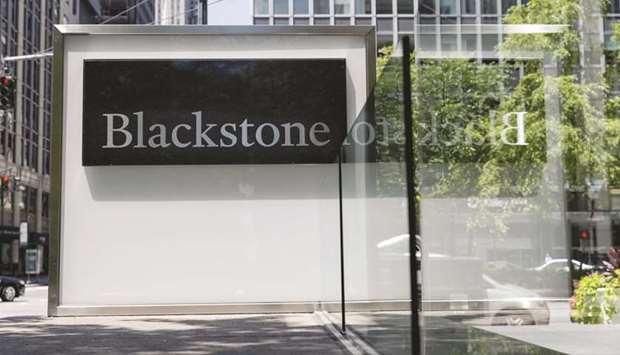For private equity firms, the Covid-19 pandemic turned a record buying binge into an industry-wide panic, upending a lucrative business model and turning dealmakers into rescuers overnight.
It’s left investors like Cinven, Blackstone Group, Permira and KKR & Co rushing to set up financial lifelines for their European holdings, providing emergency loans or buying debt back off the companies they own. In some cases, firms are asking their limited partners for funds to plug liquidity shortfalls – money that should have been deployed for deals.
Economic shutdowns across entire nations have transformed portfolios of prized assets into fragile packages of unprofitable or even insolvent companies. In Europe alone, there’s more than 370bn euros ($410bn) of leveraged loans that needs paying.
Many of those holdings are from sectors bearing the brunt of the virus’s economic impact, such as travel agents, theme parks, restaurant chains and hotels. The value of private equity assets may drop by as much as 50% by mid-year, according to one analysis by Investec Plc.
“Since the beginning of the crisis, we’ve been focused on making sure that our companies have enough short-term liquidity and that operations are running smoothly in the absence of new deals,” said Torsten Grede, chief executive officer at Deutsche Beteiligungs AG, a German listed private equity firm.
Investment committee meetings, normally dedicated to picking new companies to target for acquisitions, last for days now and are dominated by assessments of how long their assets can withstand the global shutdown.
“Everyone is trying to stress test their portfolio companies and ask – if we drop revenue 30% or 50% how long will it be until we are in a fully distressed position?” said Nizar Tarhuni, a director specialising in private equity at research firm PitchBook.
Portfolio companies: Investors with the available funds are already moving to help keep the companies they own afloat and head off the threat of debt restructurings in which they could lose control to creditors.
BC Partners has been buying chunks of Dutch flower and pot-plant brand Duemmen Orange’s 425mn euros in leveraged loans at about 40% of face value over the last two weeks, according to people familiar with the transactions who asked not to be named because it’s private.
The move will strengthen BC’s hand if the company needs to negotiate a debt restructuring with lenders. A representative for BC declined to comment. Already at the outset of the global contagion, private equity firms were asking their companies to take as much as they could from financing facilities arranged with banks.
On March 13, Cirsa – a Spanish gaming company owned by Blackstone – drew 175mn euros from its credit facility as its bingo halls and casinos in Italy, Spain and Latin America shut down.
Private equity owners are also arranging new loans for their holdings. KKR funneled 50mn euros via a senior-ranking loan to Selecta, its vending machine operator. Cinven, EQT AB and the private equity arm of the Canada Pension Plan Investment Board are planning to support their Spanish travel firm Hotelbeds with a 400mn-euro loan.
Under pressure: Many of the larger private equity firms have deep enough pockets to bolster at least some of their businesses through the crisis. A few are also raising new funds from investors to take advantage of distressed opportunities and buy new assets cheaply.
Apollo Global Management is calling committed funds and expects to use dry powder to buy discounted debt of firms it’s potentially targeting.
Others are starting to provide rescue finance outside their own portfolios. Apollo, Blackstone and KKR, for example, are in interested in potentially helping Germany’s soccer league to bridge a cash gap.
And while private equity backed acquisitions have slowed to a trickle, they haven’t yet dried up entirely. KKR agreed to buy British recycling business Viridor this month, valuing it at 4.2bn pounds ($5.2bn).
“Believe it or not, but not all buyside mandates have been suspended for private equity,” said Steve Krouskos, EY’s global vice chair of transaction advisory services. “Some discussions are still active.”
Valuations fall: In the coming months, the fall in valuations could allow private equity firms to take companies private and do carve-outs as corporates will need to sell units to raise capital through the Covid-19 crisis.
Opportunities may also arise for bolt-on acquisitions for their portfolio firms and for building up smaller stakes in public companies in need of capital.
Notwithstanding the continued flow of funds and new deals, the industry still faces a reckoning that may lead to a far-reaching rethink of how much risk investors should carry in their portfolios.
The extent of the crisis hasn’t yet sunk in for many, according to Haresh Patel, head of private equity data analysis firm Mercatus Inc.
While some private equity firms are taking advantage of the crisis, around a third of them are like “deer in the headlights and don’t know what to do,” he said.

A signage is displayed outside the Blackstone Group headquarters in New York.
